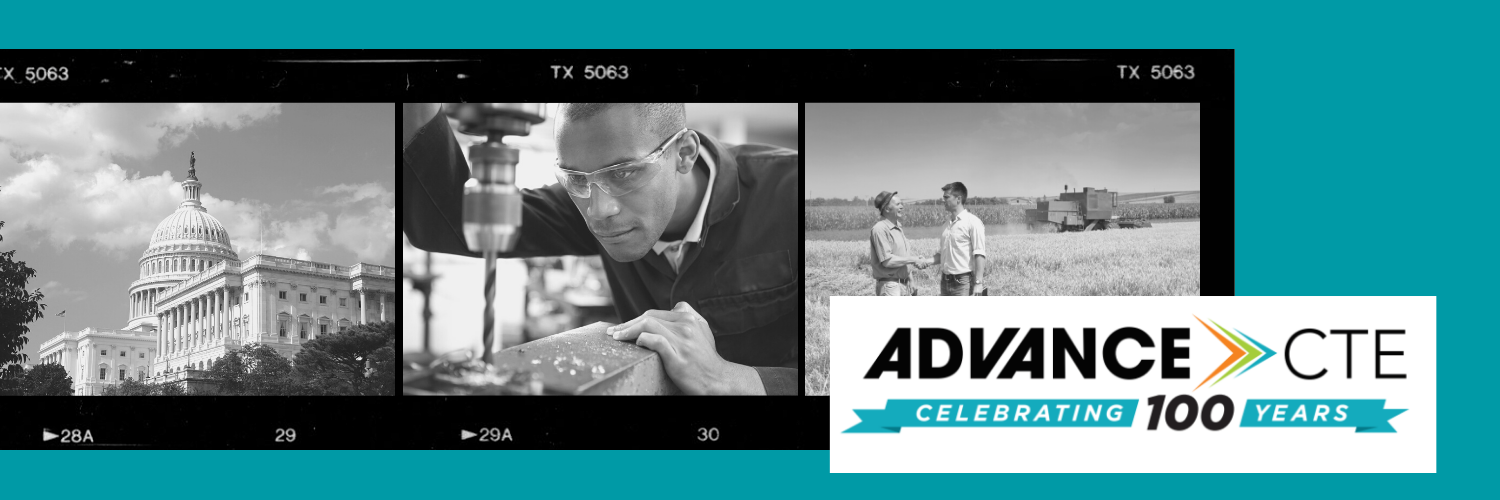
We are celebrating 100 years of Advance CTE! Throughout the year, we’ll feature interviews with past State CTE Directors, Board of Directors members, partners, CTE leaders and more.
Rich Katt, Career Education and Workforce Policy Consultant began his journey in Career Technical Education (CTE) decades ago as a student in high school. After graduating, he became an educator for six years. Following this, Rich went on to serve as a Career Technical Student Organization (CTSO) state advisor, then a CTE program director, and ultimately the State CTE Director in Nebraska. An impassioned advocate for CTE’s impact, Rich traces his inspiration back to mentors like Ann Benson of Oklahoma, individuals he considers pillars of the CTE leadership. Although he recently entered retirement, Rich remains heavily involved in the CTE community and is committed to empowering future leaders in the community. Learn more in the interview below.
What did CTE look like when you entered the field?
I started off as a product of CTE and then became a teacher. At this point, we were really under the vocational education system and driven by the traditional disciplines.
One of the most significant things Advance CTE did back then was implementing the Career Cluster Model. I am not sure we State Directors knew exactly what to do with the clusters when they first came out, but thanks to some strong leadership and great conversation it became apparent that the model really was a framing structure for us to make CTE more relevant and to broaden our instructional base. This has been one of the significant changes that have really expanded the field’s perspective and created a much tighter alignment with workforce needs and economic priorities, both on the state and national levels.
How has Advance CTE’s role evolved?
When I started, Advance CTE was more like a convener. I think the organization saw its role as getting the State Directors together and then seeing what they wanted to talk about. What it has morphed into under Kim’s [Kimberly Green, Executive Director] and the Board of Directors leadership is to say, we are going to position this organization to be the CTE organization, the one that produces the resources that are needed, the one that guides and develops policy and law. This is a much stronger leadership position than what we had back when I started.
There was an absolute need for Advance CTE to provide this leadership, too. I think it really brought us around a more central mission and vision for what CTE needs to be, and the net result is a more coherent CTE system on the national level.
What is your vision for where CTE is going, where do you want it to go?
Career Technical Education can deliver more than its history. I think in some cases some of our curriculum probably focuses too much on the past and knowledge that I can google. So the question is how do we make it more relevant? I think that is the kingpin that we can really tie ourselves to, the relevance of how students use this.
That is one piece of it. I think the other piece is continuing to be relevant in terms of our alignment to jobs of the future. This means partnering with businesses and industry even more than we have to talk about what are the needed skill-sets, and what do we need to have students know and be able to do as they exit CTE. If we could position them for lifelong learning and to understand how to transfer knowledge and skills to what they are immediately asked to do in the job, then I think we’ve accomplished something. So it is a shift in the mindset that we aren’t done pursuing.
What CTE does is really lite the fire and start the process of lifelong learning. We are going to teach you how to learn, so that you can continue to do that on that job and be even more successful as an employee, manager, entrepreneur, or whatever you choose to do.

